Survey: Restarting our ticketing journeys
Ahead of this year’s Forum, we took the opportunity to survey our global ticketing community to identify and track the key issues for our sector. The information will help us to develop the conference programme for December but also, at this critical time, offers some collective insights into the state of our sector.
We reached out to 367 C-level ticketing leaders, across a range of rightsholders, promoters, venues and agents (across a mix of entertainment genres) in 18 countries.
Profile of Respondents (total 244 fully completed)
Theatre/Perf Arts 29%
Sports Team/Club 21%
Promoter/Festival Organiser/EventProducer 16%
Stadium/Ballpark/Racetrack (outdoor sports venue) 14%
Arena 12%
Sports League/Governing Body 12%
Visitor Attraction/Gallery/Museum 10%
Live Music Venue/Nightclub 8%
Ticket Agent 8%
Congress/Exhibition Centre 3%
To be clear, this wasn’t a forensically-scientific undertaking but more of a “check the pulse on a patient which has been in and out consciousness” for the past 12 months.
TheTicketingBusiness asked for responses to four questions around business areas, technology investments, operational challenges and, the big one: what’s the one question you want answered?
We promised anonymity (and aggregation) in the results but in producing this short summary, we grouped responses across venue type (theatre/stadia/arena), entertainment form (theatre, music, sport), venue capacity and job function.
So, one year on from the first lockdowns, what’s the state of our sector? What’s on our collective minds as we line up our online carts once again?
BURNING QUESTIONS
No surprise that top billing went to “getting customers back”. Over two-thirds of respondents were investing – or had already invested – in COVID-safe measures, such as sanitiser stations, contactless entry, screens and messaging. Nearly the same number – across all genres/venue types – were exploring digital and mobile tickets.
Looking further into the detail, it is evident that the sector still needs software tools to assist with its restart. Many were looking at tools for “social distancing which are not tied to a certain ticketing platform” or modelling which “can best adapt ticket availabiliy to changing safety requirements?”
Many commented that the pandemic has (and will continue to) accelerate the decline of paper/printed tickets. Several respondents confirmed that they were evaluating more “flexible T&Cs on bookings” or “specific COVID-19 conditions” to allow for potential switch to virtual or streamed event, rescheduled dates or refund restrictions. One summed it up as: “We want something more binding than a pure registration but more flexible than a ticket with a row and seat number.”
But a shared concern across the survey’s respondents was “getting our customers to feel safe to attend and confident to purchase tickets in advance.”
The biggest challenge facing the restart? Universally this was cited as “external factors” such as revised government guidance, travel restrictions, local lockdowns – all of which were considered “beyond our control”.
Which topics have your current focus?
Re-Opening/Covid-Safe Tools & Guidelines 68%
Mobile/Digital Tickets 67%
Data/Analytics/CRM 57%
Seat Maps/3D Visualisation/Social Distancing 53%
Pricing/Yield Management 50%
Marketing & Distribution 46%
Payments/Refunds 46%
Loyalty/Membership/Rewards 40%
On-Sales/Demand Management 40%
Access Control/Accreditation 37%
Ticketing Platforms/Saas/White Label 36%
VIP/Hospitality Packages 35%
Resale/Secondary/Exchange/Transfer 33%
Insurance/Refund Protection 26%
Blockchain/Smart Contracts 18%
Travel/Tourism Connections 14%
Packaging/Printing/Presentation 13%
CONCERN FOR COLLEAGUES
We may sell something as ephemeral as a ‘voucher for access’ but our hearts and minds are very much in the real world. Concerns for colleagues and employment prospects featured heavily in the responses. It is apparent that the pandemic has had an immediate – and perhaps long term – impact on employment levels.
“How are individuals coping with the loss of their ticketing co-workers through lay offs?” was a common sentiment. Also echoed in concern over the welfare for those still in employment: ““How best to re-launch and prepare staff for the return of live events with new procedures?”
Several businesses indicated that they were unlikely to re-hire to the same pre-pandemic levels of employment. One MLS executive reported: “We’ve had to lay off nearly half of our staff. We had over a dozen employed in ticket customer service. We will now have to do a lot more with a lot less resource. So I guess that’s where AI/chatbots and automation has to come in?”
PRICED TO SELL
Two-thirds of respondents believe that the pandemic will have “mid- to long-term impacts on demand, pricing and sales volumes”. And over half of respondents stated that they are evaluating pricing and yield management tools in an effort to recover customers and volumes.
One arena CEO commented: “How are attitudes changing moving forward about pricing when it comes time to reopen? Will prices need to be lower to bring back fans or will there be enough pent up demand to charge pre-Covid amounts? How best to respond to the impact of COVID – particularly increasing yield from a reduced audience?”
Has the value of historic sales data been reduced due to COVID-19? “Pricing Management in the post-COVID era is our main focus. How can we do it in an efficient, dynamic way, taking into account marketing/discount/loyalty programs and secondary market? Historical data is not so helpful because our audience changed a lot (some scared, some cannot travel etc.)?”
Added to the challenge of balancing unknown supply with uncertain demand, many also raised the issue of later on-sale dates (closer to the event): “Before COVID we noticed a trend towards fans buying later and later. We probably need to adapt our sales processes to factor this in alongside the likelihood of shorter sales cycle, i.e. three weeks’ notice an event is happening.”
“We need to be more transparent around the issue of fees,” wrote one promoter. “Fans will be eager to get back but there’s a lot of instability in the job market, therefore sensitivity around pricing and hidden fees. I’ve not seen any studies on how relevant transparency of fees for the decision process and satisfaction of the customer?”
And, staying on the subject of customer satisfaction, 21% of respondents reported they were looking membership or loyalty rewards programs but these were split into those “doing it to reward loyalty” and those doing to “obtain more patron data.”
APPETITE FOR CHANGE
Respondents from smaller venues (<1,000) capacity were concerned about the potential requirement to implement access control systems, instead of simply tearing stubs: “I can understand the appeal of all-digital tickets but we’re a small venue with limited budget. Where are the low-cost access control solutions which we can, preferably, rent per event?”
On the same issue, venue operators were pre-occupied with how to integrate access control with virus test results and vaccination certificates: “We can envisage the test results will be a pre-entry condition when we reopen. But what kind of integrations are possible between ticket and such health passports? And how do we ensure we are GDPR-compliant with all this data?”
Respondents acknowledged a sector-wide acceleration towards digital tickets, particularly on mobile phones. But, particularly in the arts and theatre respondents, there was continued concern about encouraging old patrons to adopt these tickets: “In this digital age how do we continue to cater to our older audience members who may not embrace technology? As we move to all mobile planforms, what do we have in place for those who can’t or won’t go mobile? How do you persuade an older client base to embrace completely paper-free ticketing?”
The digital transformation of ticketing raised further questions around the engagement of fans and customers – considering the entire visitor experience journey. In short, how are “how are marketing and ticketing platforms going seamless and contactless? What are the other products and services we need to include in our journey?”
DREAM STREAMS
Nearly a third of all respondents mentioned unprompted either virtual, streaming or hybrid events. Our sector has increasingly experimented with and even adopted livestreaming and other virtual event delivery solutions. The historic walls between events which are live, pre-recorded, in-person or broadcast are fractured. Ticketing leaders are now gatekeepers to the digital content, as well as the in-venue experience. Comments ranged from “how to monetise events through ticketing and membership for behind closed doors (no fans in-person)?” and “What are best marketing ideas for hosting a virtual event at your venue with no audience? How can we reach beyond our local area?” through to “What are the best options for gated digital content” and “How to implement hybrid (Online/Offline) ticket forms within the ticketing platform?”
NFC technology was mentioned in several responses but without any clarity on its adoption. In short: “Is NFC technology the future of ticketing? If so, why?”
INVESTMENT PLANS
Half of respondents were not looking to change or invest further in their existing ticketing, CRM/data or marketing platforms at the current time. But nearly 50% were looking to change their ticketing platform in the next 12-18 months. Even more were looking to invest in digital marketing tools to drive sales and online results.
A similar number businesses plan to invest in CRM/data platforms over the same timeline, with theatre, arts and promoters leading this group. Has the pandemic brought into focus the importance of owning one’s own data?
The requirement for efficient mass refunds became apparent in the early days of the pandemic with mass cancellations. Therefore, it’s little surprise then that just under a quarter (35 organisations) are now actively exploring alternative payment gateways and forms of payment.
SOFTWARE INVESTMENTS
Is your business planning considering upgrades/changes to any of the following in the next 12-18 months? (check all/any that apply)
Digital Marketing Tools 50%
Ticketing Platform 46%
CRM/Data Platforms 43%
Livestreaming/PPV Channel 34%
Payment Services 23%
THE BIG ONES
No surprise that when asked for the ‘one big question’ most respondents offered suggestions around “the future of ticketing” or “the long term impacts of pandemic.”
But more specifically, “what are organisations’ recovery strategies for reopening post-Covid? Operational considerations; rebuilding customer trust to attend live events; how can technology help etc?”
Resale and touting appeared in a quarter of answer: “Do you think that local Governments rules and restrictions against touting will be more and more strict after Covid or, considering economic crisis, they will be more tolerant ?”
The future function of the box office and or retail agencies were also questioned. For example, “Access to ticketing platforms has become simple and profitable for event producers. What is the future for venue Box Offices as rental clients opt out of our full service ticketing?”
Finding new audiences was a shared objective for all venues and entertainment genres but several believe that our sector needs to do more to recognise consumer perspectives: “What level of flexibility are venues and producers planning to offer patrons in our new environment that we have historically been reluctant to provide to customers? Are refund/exchange policies being loosened? Are group sales payment deadlines being extended or modified? Will there be especially aggressive incentives for early adopters to begin purchasing tickets again?”
These questions – and many, many more – will be explored when we get together on 2-3 December in-person in Manchester for #TBF21 The Restart.
Pre-register here
Shopping cart post-COVID photo by Hello I’m Nik 🍔 on Unsplash
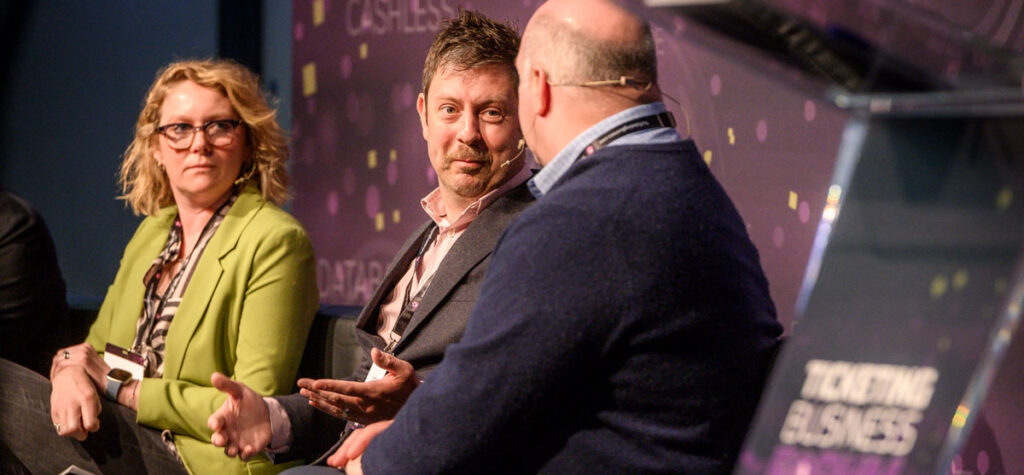
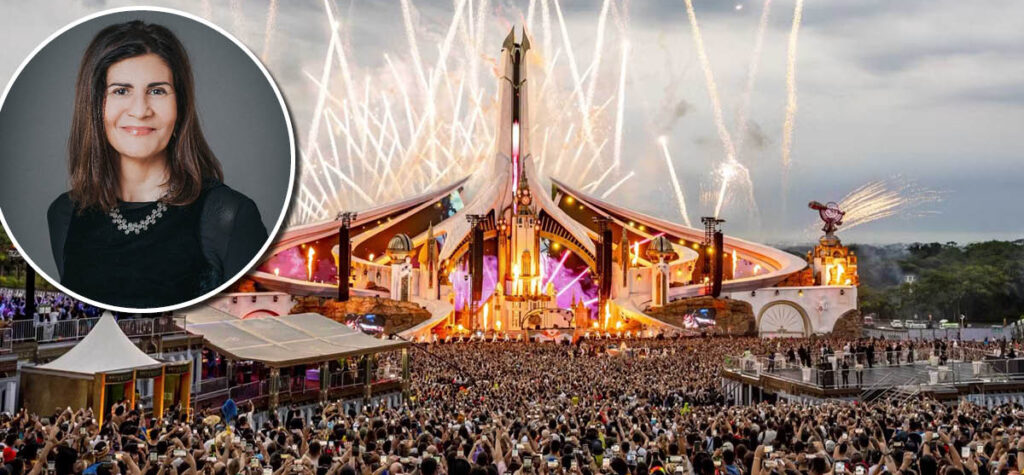
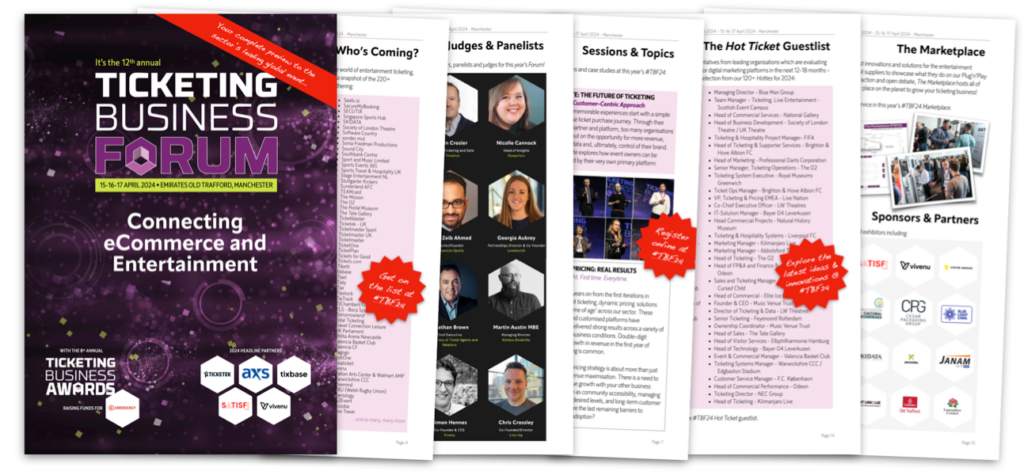

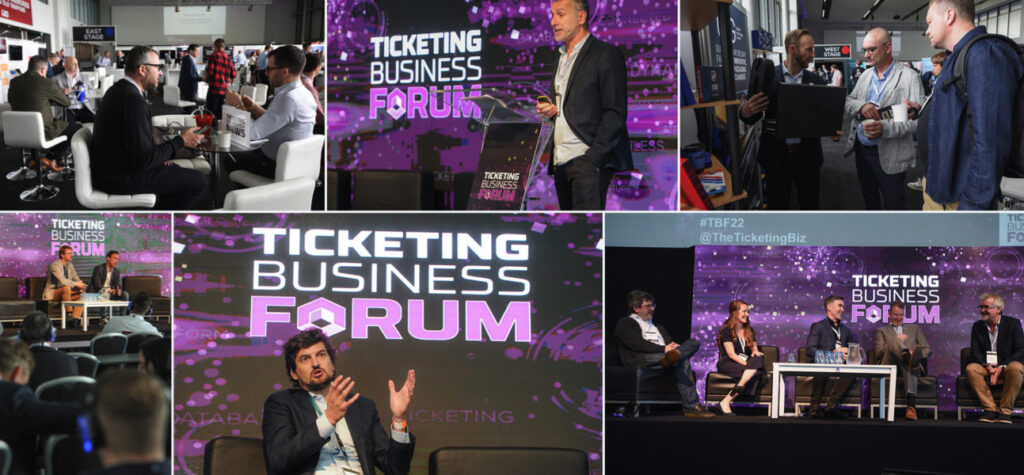
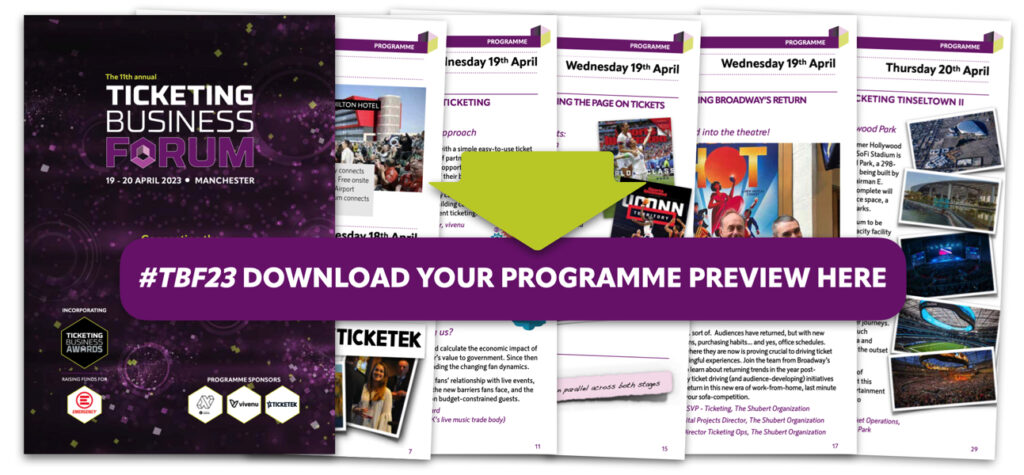
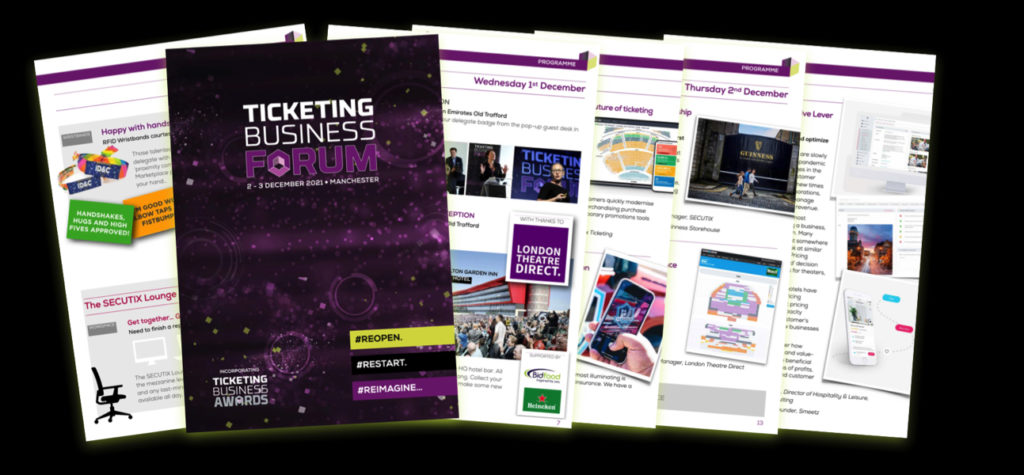

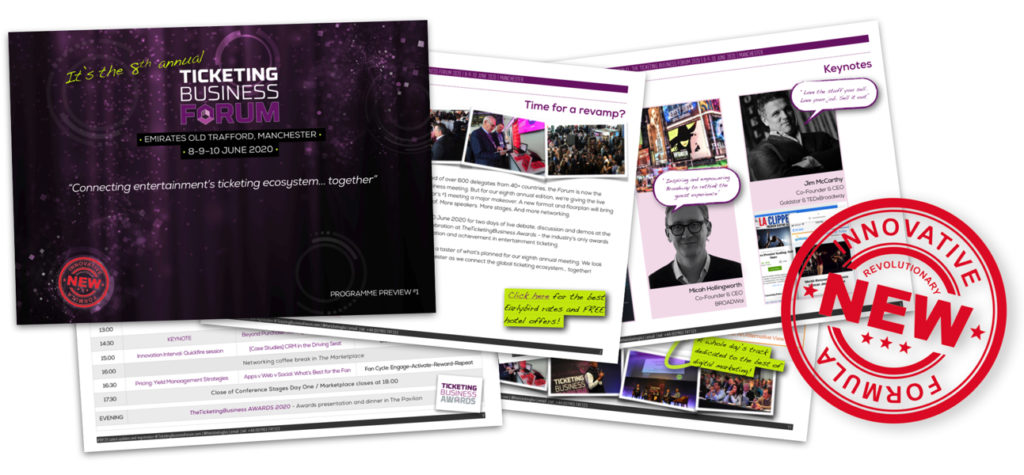

Share this